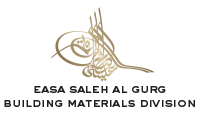Sustainable piping systems for building services industry
March 15, 2020
How adopting cleaner HVAC and piping solutions can deliver benefits that better support human health, public safety and our planet.
It is the collective responsibility of all those who operate in the Building Services Industry to place health, safety and sustainability at the heart of every project. Whether it’s design, specification, installation or maintenance, we can adopt a more holistic approach by selecting solutions that not only enhance our own projects, but also support sustainable development within our cities.
Due to COVID-19, the importance of health and safety has been amplified. The global pandemic placed health, wellbeing and sustainability at the forefront of people’s minds, encouraging the integration of ‘healthier’ solutions across diverse industries.
Let’s not forget that the way we use our buildings has also changed. For example, the rise of remote working trends has cleared out our offices and turned our kitchen tables into makeshift workspaces. COVID-19 has had a deep impact on human behaviour, causing changes that are predicted to outlast the pandemic. This will inevitably transform the way we design and build in the construction industry. Going forward, it’s important to ensure we are creating ‘smart’ buildings for the future, that have the ability to evolve with our needs.
We can start ‘futureproofing’ our buildings by ensuring they are integrated with stronger, safer and more sustainable systems. For HVAC and piping systems, intelligent product selection and enhanced installation can help improve health and safety.
We can start ‘futureproofing’ our buildings by ensuring they are integrated with stronger, safer and more sustainable systems. For HVAC and piping systems, intelligent product selection and enhanced installation can help improve health and safety.
Let’s start by looking at material selection. Metallic pipework is the future of the regional construction industry. Metallic pipes, namely Copper or Stainless Steel, can deliver increased strength, hygiene and sustainability. Currently, metallic pipework is best practice, making it the preferred choice in many parts of the world such as the UK, USA and Europe.
The use of metallic pipework is on the rise in the region, yet other materials still remain more popular. Other materials are often selected over metals because they are cheaper, however, this does not necessarily mean they are more cost-effective. The effects of COVID-19 have had a significant impact on the building services industry, increasing margin pressures and consequently, cost-savings efforts. A common approach to construction in the region is selecting products based on competitive pricing. However, lower price does not necessarily lead to lower installation costs. It can also lead to additional challenges and costs down the line. To truly construct more resilient spaces, we must adopt a long-term approach and select solutions based on value, rather than price.
In my experience with Conex Bänninger Middle East, metallic pipework can deliver value in many ways.
The use of metallic pipework is on the rise in the region, yet other materials still remain more popular. Other materials are often selected over metals because they are cheaper, however, this does not necessarily mean they are more cost-effective. The effects of COVID-19 have had a significant impact on the building services industry, increasing margin pressures and consequently, cost-savings efforts. A common approach to construction in the region is selecting products based on competitive pricing. However, lower price does not necessarily lead to lower installation costs. It can also lead to additional challenges and costs down the line. To truly construct more resilient spaces, we must adopt a long-term approach and select solutions based on value, rather than price.
In my experience with Conex Bänninger Middle East, metallic pipework can deliver value in many ways.
Copper is a 100% recyclable material. While other materials may degrade over time, copper maintains its core properties to deliver increased durability. With a growing green conscience in the region, copper solutions can help meet regional and global sustainability goals.
In the context of COVID-19, metallic pipework can enhance hygiene. Particularly for mission critical environments such as hospitals, copper is anti-microbial and less reactive to chemicals used in dosing. When used in network installations, it can prevent the growth of harmful bacteria such a Legionella and help keep our water systems safer and cleaner.
In the context of COVID-19, metallic pipework can enhance hygiene. Particularly for mission critical environments such as hospitals, copper is anti-microbial and less reactive to chemicals used in dosing. When used in network installations, it can prevent the growth of harmful bacteria such a Legionella and help keep our water systems safer and cleaner.
More About ESAG Building Materials
